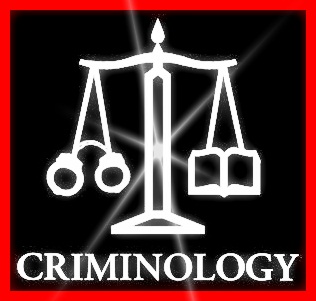Career & Scope of Forensic Science And Criminology in Pakistan- Difference, Introduction, Jobs, Nature of Work, Required Abilities, Eligibility Criteria & Core Subjects
Being a senior lawyer of High Court i know that courts release criminals just because of one fact i.e our police and investigation agencies do not know even ABC of criminology and modern psychological methods of interrogating the criminals. We need unlimited number of experts of criminology and forensic science. All criminals lawyers should go for MSc in criminology or Forensic Science rather than MA Political Science (Which is the most favorite subjects of lawyers) or LLM.
Scope of Criminology & Forensic Science-Jobs, Career, Core Topics & Job Nature
Difference Between Criminology & Forensic Science
Although Forensic Science and Criminology overlaps each other in many areas but both these are two entirely different fields. A criminal lawyer and investigation officer must study both these subjects.
Forensic Science
Forensic Science is all about preservation and analysis of scientific evidence collected from the crime scene for the investigation purpose. Experts of forensic science visit the crime scene immediately for collecting the scientific evidences, then they analyze the collected evidences in forensic labs. Forensic Science has close relation with Biology, Chemistry, Information Technology, Criminology, Bio-medical Engineering, Law and Medical fields. Although it has close connection with law and investigation but basically it a kind of applied medical science. Forensic expert must have good knowledge about the local criminal laws. Police, investigation and law enforcement agencies can not go forward in many criminal cases without their help. Some times they have to appear in court as witness and opponent lawyers reserve the right to cross examine them. So they must have good knowledge about their field and convincing arguments in defence of their reports.
Criminology
Criminology is a branch of Sociology and even Psychology. Criminologist are trained about the latest investigation methods. They are taught modern psychological techniques to handle with criminals of different kinds.
Nature of Work
Criminologists work as a psychologist too to rehabilitate the the criminals.
They work as an member of investigation team.
Being sociologist they also conduct research on the crimes.
They also work in Forensic Science labs.
They work as criminal lawyer.
They work as public prosecutor.
They can also become judge after getting LLB degree.
In media the play the role of crime and court reporter.
Majority of criminologist join police force or any other provincial or federal investigation agency.
They also train the police officers and investigation officers of other agencies during their training period,
They help the court by giving their expert opinion on different issues.
After MS/MPhil or Phd They join academia too.
They write books and articles of criminology and criminal psychology.
They give counseling to children in juvenile jails.
They train the jail officers about the criminal psychology.
Career & Scope of Forensic Science & Criminology
Employment Areas
Police
Anti Corruption Department
FIA
NAB
Universities
Forensic Labs
Juvenile Jails
Police Training Colleges
Provincial & Federal Investigation Agencies
Intelligence Agencies
Female Jails
Armed Force
Military Police
Investigation Centers
Forensic Labs
Jails
Interior Affairs Department
Courts As Lawyer & Public Prosecutors & Even Judges
Job Types
Investigation Officer
Criminal Psychologist
NGO Activist
Army Officer
Criminal Lawyer
Public Prosecutor
Judge
Lecturer
Instructor in Training Institutions
Consultant
Crime & Court Reporter
Writer
Required Skills
You must have ability to convince the others with your arguments and psychological techniques.
You must have interest in Human/Applied/Clinical Psychology, Law, Medical Science and Sociology.
You must have ability to face and tackle problem criminals.
Some times you will have to deliver speeches to so you must have good public speaking skills.
Only Western countries are researching in Criminology so you must stay in touch with latest development in your field through internet
Only people with extrovert nature should enter in the field of Criminology.
Unfortunately till now there is little scope for criminologist in our criminal investigation and justice system so you guys should try to get MPhil/MS rather PhD degree for finding a job in overseas, MSc degree is enough for Lawyers but they should also remain in touch with latest development.
Eligibility Criteria
You student must have passed BA, BSc degree with at least 2nd division for getting admission in MA or MSc program.
Core Topics, Subjects, Syllabus & Curriculum
In Pakistan following key topics are taught in master level degree of Criminology.
Introduction to Criminology, Sociology, Psychology & Security Studies
Terrorism Extremism Sectarianism & Violence
Drug Abuse & Related Crimes in Pakistan
Procedures of Evidence in Criminal Law of Pakistan & Islam
Importance of Forensic Science in Criminology
Policing & Investigation in Pakistan
Organized/White Collared Crimes & Money Laundering
Crimes & Criminology in Pakistan
Islamic Perspective on Crime and Punishment
Criminal Investigation Methods & Theories
Latest Community Justice & Crime Prevention Methods
Child Abuse & Juvenile Delinquency
Penology
GIS (Geographical Information System)
Local Criminal Justice System
Research Methods
Social Statistics About Crimes in Pakistan
Organizational Behavior and HRD
Latest Research in Criminal Psychology
Crime & Mental Health Problems
Gender, Age & Crime
Use of Computer Technology
National & International Perspective on Crime and Security
Crime and Criminality Modern Theories & Useful Policies
Crime and Security
Internship & Thesis
This list is not final at all as syllabus of one university differ with other university.
Read our articles on LLB, LLM and “How To Become a Successful Lawyer” for more guidance. Stay in touch with studysolutions.pk and its facebook page for reading career counseling articles on different legal degrees.
